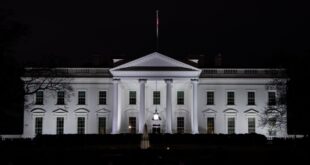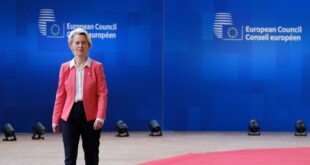By Joyce Karam
Albeit a power-sharing government, and a dialogue that is in play between his party and Hezbollah, but former Lebanese Prime Minister Saad Hariri is leaving no room for doubt when it comes to the new “united Arab front in countering the Iranian influence.” Coordinating some form of a safe zone in Syria and arm-twisting measures across the greater Middle East are in the works Hariri says, in what experts interpret as a direct reaction to “U.S. abandonment” of the region.
In a closed meeting with Arab journalists during his current visit to Washington, Hariri said “Operation Decisive Storm,” which Saudi Arabia and a regional coalition launched in Yemen on March 25, is “the beginning of a united Arab front against Iranian influence.” The Lebanese leader, who met U.S. Vice President Joe Biden on Friday and was received by Saudi King Salman bin Abdulaziz prior to arriving in DC, laments that “the international community will stand with the strong, and this is a fact we have realized in Yemen and beyond,” adding: “we have to be as aggressive to counter Iran.”
Safe Zones in Syria?
While airstrikes in Yemen are a “game changer” in Arab action in the region, Hariri does not expect an exact blueprint of this in targeting Iran’s other spheres of influence. He tells Al-Arabiya News that “we might find it in different forms against Iranian influence, in Africa, in Sudan, in Nigeria, and in Syria.” The fate of the Assad regime is “the joint” of Iranian regional influence Hariri says, and what happens in that conflict over the next few months “will have a domino effect on Iranian influence in Iraq, Yemen, Lebanon and even inside Iran raising question marks over billion they spent on Assad”.
Establishing safe zones, or at the very least providing “air cover” in the areas where the Syrian rebels are advancing in the North and South, are “inevitable” says Hariri, warning that “they have to go into parallel with uniting the opposition, and organizing the non-ISIS rebels.” This sentiment is echoed by Turkish officials who have recently visited Washington and requested according to Western sources an “air cover” to be added to the U.S.’ “train and equip program” for Syrian rebels.
For Hariri, however, such action in Syria could come regardless of Washington’s position or whether it strikes a nuclear deal with Iran or doesn’t by the end of June. The main Arab objective as Hariri spells it out, is “restoring Arab will after years of Iran trying to break it.” As for ISIS, he says “we are against ISIS and we will get rid of ISIS but without national reconciliation in Iraq between Sunnis and Shias and Kurds, and If Assad stays, we will keep getting ISIS with a different name or something worse. “
Reaction to U.S. abandonment?
Hariri’s forceful talk about a regional front, is an attempt by U.S.’ traditional allies to “reassert themselves in the Middle East,” says Ghaith Al-Omari, a senior fellow at the Washington Institute for Near East Policy. “There is definitely a feeling that the U.S. has abandoned its allies, is investing in Iran and withdrawing from the region” Al-Omari says in a phone interview with Al-Arabiya News.
The former advisor to the Palestinian negotiating teams says “the sense I hear in the region is the U.S. punishes its friends and rewards its adversaries.” This was on display according to Al-Omari starting in 2011 and “Washington abandoning former Egyptian President Hosni Mubarak, then in 2013 erasing the redline on chemical weapons use in Syria” and turning “a blind eye to Iran’s regional role while focusing the negotiations on the nuclear file.”
The “trust is broken” says al-Omari between the Obama administration and the traditional regional allies. In an event of an Iran deal, the expert predicts more “pro-active local Arab action,” whereas if the negotiations falter, he anticipates “a convergence of interest” between Washington and Middle East allies without “restoring trust.”
 Geostrategic Media Political Commentary, Analysis, Security, Defense
Geostrategic Media Political Commentary, Analysis, Security, Defense





